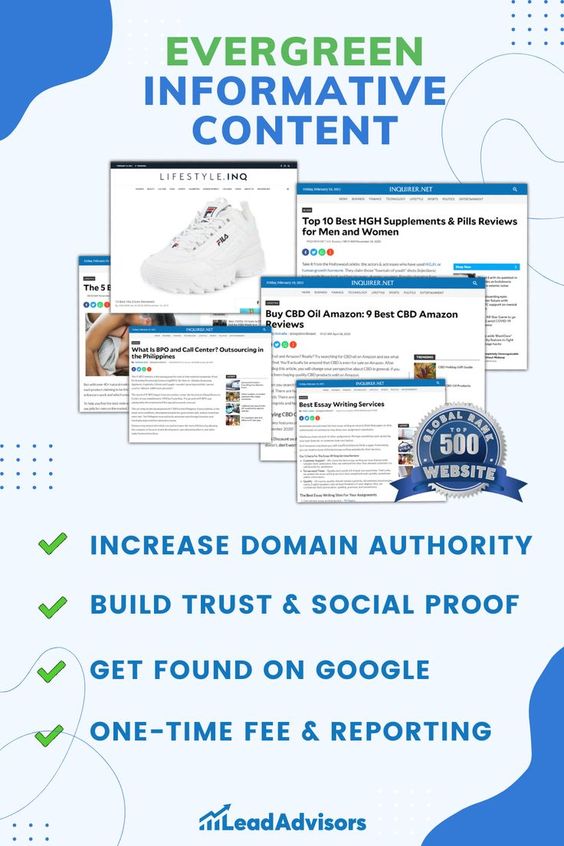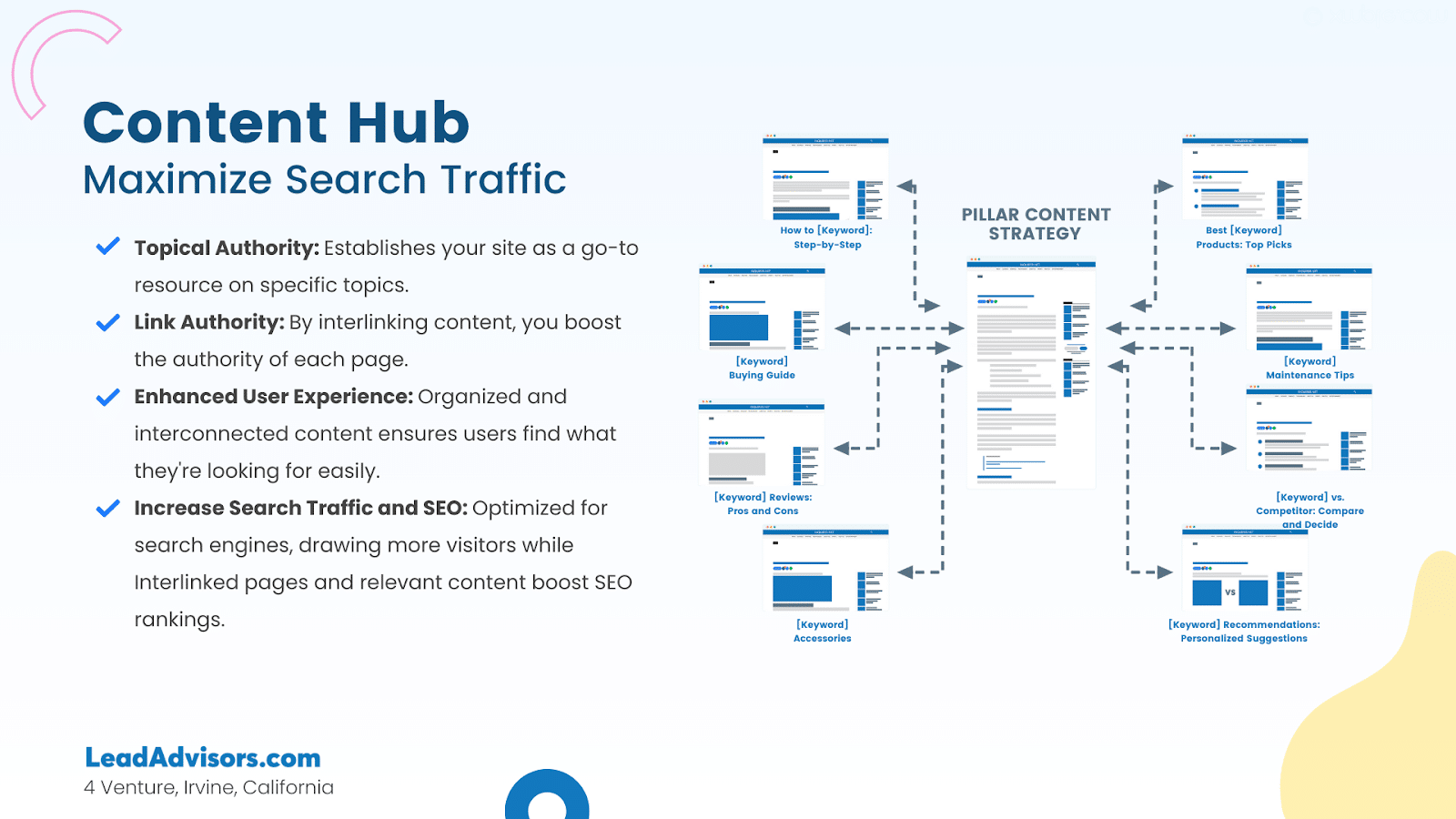If you have a website, you know how important it is to have a high ranking on search engines. But with so many websites out there, it can be tough to stand out and get noticed. One crucial factor that can influence your website’s search engine ranking is domain authority. However, it can be difficult to understand what domain authority is and how to improve it.
You may feel frustrated and overwhelmed if you struggle to improve your website’s ranking. It can be challenging to know where to start, especially if you’re unfamiliar with search engine optimization (SEO) best practices. Without a strong domain authority, your website may struggle to rank high on search engine results pages (SERPs), which could result in fewer clicks, less traffic, and, ultimately, lower revenue.
Fortunately, improving your website’s domain authority is achievable with the right strategies. In this blog, you will discover five simple steps in improving domain authority to boost website ranking. Following these steps can increase your website’s visibility, attract more visitors, and improve your search engine ranking. With a higher domain authority, your website will be more likely to appear at the top of SERPs, resulting in more clicks, more traffic, and, ultimately, more revenue.
What is Domain Authority?
Simply put, domain authority is a measure of how much search engines trust your website. It’s like a grade that search engines give your website based on a variety of factors such as the quality and quantity of links pointing to your website, the relevance of your content to your target audience, and how long your website has been around.
Think of it like a popularity contest, but instead of votes, you get points for things like having high-quality content, being linked to by other trustworthy websites, and having a website that’s easy to navigate. The higher your domain authority, the more likely your website is to appear at the top of search engine results pages (SERPs) when someone searches for a keyword related to your website.
Now, you may be wondering why domain authority is so important. Well, the answer is simple: higher domain authority equals higher search engine rankings, which leads to more traffic and potential customers for your website. Plus, a higher domain authority means that search engines trust your website more, which is always good.
So, how do you increase your domain authority? That’s a great question! There are a variety of factors that contribute to your website’s domain authority, but some of the most important ones include creating high-quality content, building high-quality backlinks, and improving your website’s overall user experience.
Don’t worry if all of this sounds a little overwhelming, though. In my next blog post, I’ll give you five simple steps you can take to improve your website’s domain authority and boost your search engine rankings.
How is Domain Authority Calculated?
Domain Authority (DA) is a metric developed by Moz, a popular SEO software company, to help website owners determine the strength and credibility of their domain. The DA score is based on various factors that are analyzed using Moz’s proprietary algorithm.
Linking Root Domains
The Moz Algorithm takes into account various factors when calculating a website’s domain authority. One of the most important factors is the linking of root domains. This refers to the number of unique domains that link back to your website. The more linking root domains your site has, the higher your DA score will likely be.
Total number of Links
The total number of links to your website is also essential in calculating domain authority. However, it’s important to note that the total number of links isn’t the only factor Moz considers. Instead, the quality of the links is more critical than the quantity. Having many low-quality links won’t boost your DA score as much as having fewer high-quality links.
Quality of Your Link Profile
The quality of your link profile is another significant factor that Moz uses to determine domain authority. A high-quality link profile means that the links pointing to your website come from reputable and authoritative sources. Conversely, a low-quality link profile can negatively impact your DA score.
The Trust of Your Link Profile
Finally, Moz’s algorithm takes into account the trust of your link profile. This refers to the credibility and authority of the websites that link back to your website. If your website has links from trustworthy sources, such as government websites or major news outlets, your DA score will likely be higher.
Domain Authority is a complex metric that considers various factors when determining a website’s strength and credibility. While link building is essential to improving DA, it’s important to focus on quality rather than quantity. Building a high-quality link profile from reputable and authoritative sources is the best way to increase your DA score over time.
Note: A higher DA score indicates that your site is more likely to rank high in search engine results pages (SERPs). However, it is not a metric used by Google in determining search results.
What Domain Authority Does Not Include?
While Domain Authority (DA) is a helpful metric in determining the strength and credibility of a website, it’s essential to understand what it does not include. There are certain factors that are not considered in the calculation of DA, and knowing them can help you get a better overall understanding of your website’s performance.
- Domain Authority does not include any information about a website’s actual PageRank.
- It also does not consider other off-page factors that may influence search engine rankings, such as on-page optimization, anchor text, or the site’s age.
- It is a logarithmic scale, so it’s more important to focus on the relative difference between two Domain Authority scores rather than the actual numerical Domain Authority score.
Domain Authority scores can be used as a comparative metric to track the relative progress of your website over time.
For example, suppose you see that your Domain Authority has increased from 30 to 40 over the course of several months. In that case, you can be confident that your site’s search engine optimization (SEO) efforts are performing and having a positive impact.
While Domain Authority is important, it’s just one small part of the larger picture; your website’s success ultimately depends on a variety of other factors, including on-page optimization, off-page SEO, and content marketing.
5 Steps In Improving Domain Authority
If you’re looking for ways to improve domain authority, you can take a few key steps.
By following these steps, you can extensively improve your website’s domain authority in no time!
1. Publish high-quality content consistently.
Improving your Domain Authority (DA) is essential for ensuring that your website is credible and trustworthy. One of the most important steps to improve your DA score is consistently publishing high-quality content.
Search engines like Google love websites that provide value to their users and one of the best ways to do that is by publishing informative, engaging, and relevant content. When you consistently produce high-quality content, your website becomes a valuable resource for your audience, and search engines reward you with a higher DA score.
To publish high-quality content consistently, you must focus on creating content that resonates with your target audience. This means understanding their pain points, interests, and needs and crafting content that addresses those issues. You should also aim to provide unique insights and perspectives on topics that your audience cares about.
In addition to creating valuable content, optimizing your content for search engines is important. This means including relevant keywords in your content, using descriptive meta tags, and ensuring that your content is structured correctly. When your content is optimized for search engines, it’s more likely to rank higher in search results, which can help to improve your DA score over time.
Finally, promoting your content through various channels is important to attract more visitors to your website. This can include social media, email marketing, and guest blogging on other relevant websites. When your content is widely shared and linked, it can help boost your website’s authority and improve your DA score.
2. Promote your content.
Improving your Domain Authority (DA) can significantly impact your website’s performance and visibility on search engine results pages. One effective way to boost your DA is to promote your content. Here are 5 steps you can take to promote your content and improve your DA:
- Share your content on social media: Social media platforms like Facebook, Twitter, and LinkedIn are excellent places to share your content and increase its reach. By sharing your content on social media, you can attract more visitors to your website and potentially earn more backlinks.
- Guest posts on other websites: Writing guest posts for other websites in your niche can effectively earn backlinks and increase your website’s visibility. When you guest post, include a link to your website in the author bio or within the content itself.
- Use email marketing: Email marketing can be a great way to promote your content and drive traffic to your website. You can use email to promote your latest blog post or send newsletters to your subscribers.
- Participate in online communities: Engaging in online communities like forums, Reddit, and Quora can help you establish yourself as an authority in your niche and promote your content. Be sure to share valuable insights, answer questions, and include a link to your website when appropriate.
- Repurpose your content: Repurposing your content into different formats like infographics, videos, or podcasts can help you reach a wider audience and attract more backlinks. When repurposing, make sure to include a link back to your original content.
By following these 5 steps to promote your content, you can attract more visitors to your website, earn more backlinks, and improve your Domain Authority over time. Keep in mind that promoting your content takes time and effort, but the results are worth it. So, get started today and watch your DA score grow!
3. Commit to Guest Posting
Guest posting can be a great way to get your blog exposure, build your portfolio, and connect with other bloggers in your niche. It can also be a great way to improve your visibility and generate traffic back to your own site.
If you’re interested in guest posting, there are a few things you need to keep in mind:
- Make sure that you’re only guest posting on blogs that are relevant to your niche.
- Take the time to craft high-quality posts that will offer value to the readers of the blog you’re guest posting on.
- You should also check their DA and PA for target pages, their posts’ length, and their audience.
When it comes to refining your website’s search engine optimization, two of the most critical factors are keywords and backlinks. Make sure to use relevant keywords in your content and include links back to your site whenever possible.
4. Reference other authoritative websites in your content.
In order for your content to be truly trusted and authoritative, you should reference other reputable websites within it.
By including links to relevant and trustworthy sources in your content, you provide valuable information to your readers and show search engines that your content is well-researched and reliable. This can improve your website’s credibility and ultimately lead to higher rankings in search engine results.
It could include linking to news articles, research studies, or other blog posts. Including these references adds credibility to your content and helps build relationships with other websites.
So, next time you’re creating content, take the time to find and link to reputable sources that support your ideas or add value to your content. Not only will it make your content more informative and engaging, but it will also help to boost your website’s domain authority in the long run.
Remember, linking to other authoritative websites is good for SEO and a great way to show your readers that you care about providing them with accurate and trustworthy information.
AuthorityLabs provides an up-to-date list of the top 100 domain authorities. Check it out to see where your site ranks and get some ideas for sites to reference in your content.
5. Monitor your website’s analytics and adjust your strategy accordingly.
Here’s the deal: your website’s analytics provide valuable insights into your website’s performance, such as how many people are visiting your website, where they’re coming from, and what pages they’re visiting. By keeping an eye on these metrics, you can identify improvement areas and make website changes that will boost your domain authority.
For example, if you notice that your website has a high bounce rate (meaning that people are leaving your website after only visiting one page), you can look at ways to improve the user experience and make your website more engaging. This might include adding more internal links, improving your website’s design, or creating more compelling content.
On the other hand, if you notice that a particular page on your website is getting a lot of traffic, you can optimize that page further and ensure it provides value to your users. This might include adding more information, images or videos, or a call to action to encourage visitors to take action.
So, don’t forget to monitor your website’s analytics and adjust your strategy accordingly. By doing so, you’ll be well on your way in improving domain authority and attracting more visitors to your website!
CONCLUSION
As we mentioned, the aspect of boosting your domain authority score correlates with your content marketing strategy.
Thus, you’ll need a partner to build a holistic strategy that includes various content across multiple platforms.
At LeadAdvisors, we shape narratives and perceptions with informative evergreen content and powerful storytelling to elevate brand awareness, drive conversations, and achieve exceptional results.
- Online for months and years to come!
- Content with a Dofollow link that Google will index.
- Permanent publication featured on Google News.
- Build value and reputation when customers search for your brand online.
- Keyword ranking and links back to your website.
Why LeadAdvisors?
Our website credentials
- 20 Million Monthly Users
- 5 Million Monthly Visits U.S.
- 1.5 Million Monthly Visits CANADA
- 750k Monthly Visits Australia
- 500k Monthly Visits UK
- DA 89 by Moz
- DR 84 by Ahrefs
FAQs
What is a good domain authority score?
Scores between 40 and 50 are counted to be average. Domain Authority between 50 and 60 are rated as good. Scores above 60 rate the Domain Authority as excellent.
Does Google use domain authority?
No, Google does not use Domain Authority in its algorithm.
Does Domain Authority affect SEO?
Although your domain authority score does not directly influence your SEO ranking, it can still impact the results of your SEO campaigns.






















